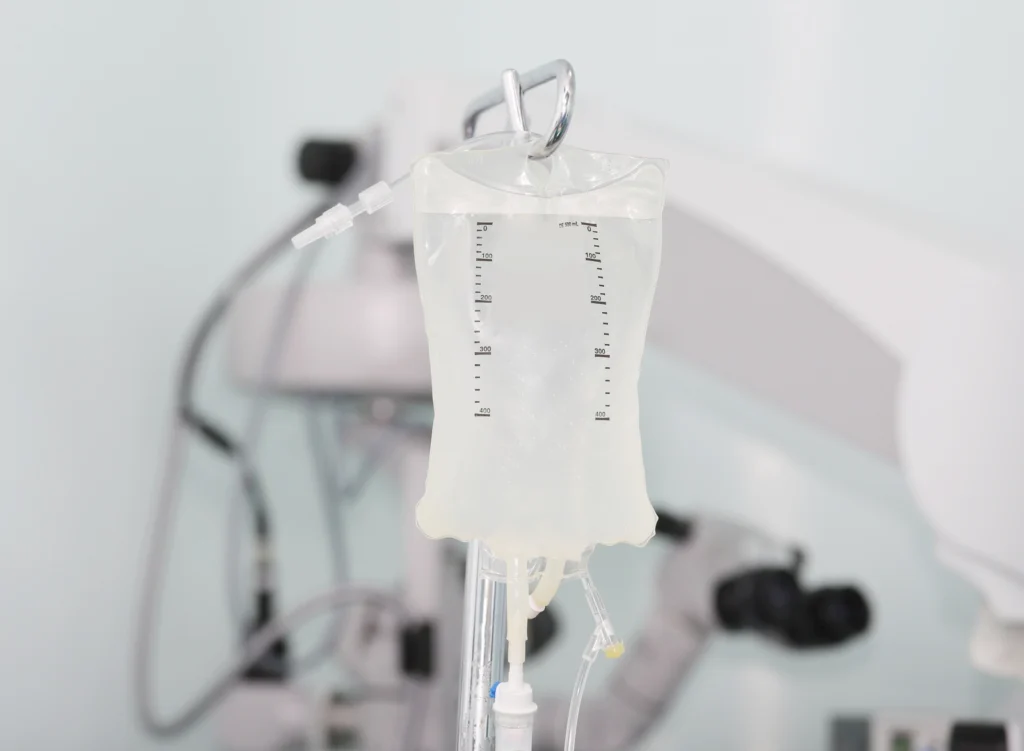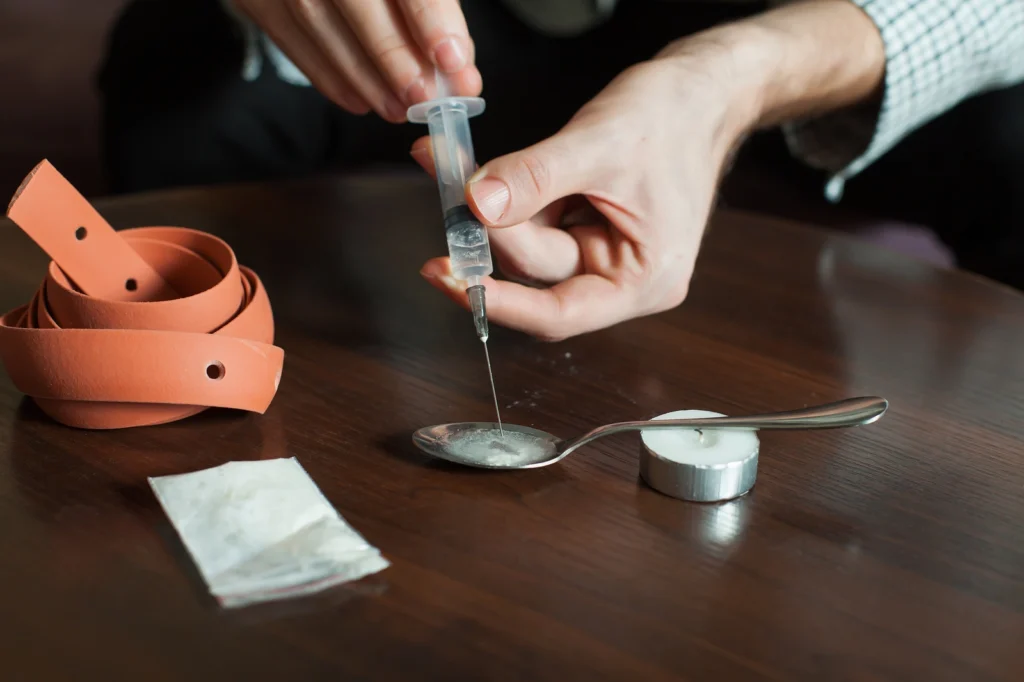How Does a Fentanyl Detox Work Within Addiction Treatment? Everything You Need To Know

How Does a Fentanyl Detox Work?
The detox process specifically aims to safely clear the drug from the patient’s system. The primary goal of detox is to manage withdrawal symptoms and prevent severe complications.
Fentanyl addiction treatment during the early detox stage aims to break a person’s cycle of drug dependence. With the assistance of healthcare staff, professional drug detox can make the fentanyl withdrawal process safer and less uncomfortable, and the subsequent treatment and therapy can help diminish the risk of future drug overdose.
Fentanyl Drug Facts
Fentanyl is a Schedule II narcotic.[1] It was made available in the early 1960s and was often used in hospitals as an anesthetic. It is still used for this purpose, especially to help people recovering from surgery and those with conditions that cause severe pain. As a highly potent pain killer, fentanyl is an extremely dangerous substance when misused or abused.
Fentanyl Withdrawal Symptoms
Common withdrawal symptoms include the following:
- Increased heart rate
- Sweating
- Nausea
- Diarrhea
- Anxiety
- Insomnia
- Body pain
- Chills
- Increased irritability and mood swings
What Are the Short-Term Dangers of Fentanyl?
Fentanyl’s potential for abuse is very high compared to other pain-relieving drugs due to its opioid properties. Fentanyl is completely synthetic and made in a lab rather than being derived from the dried natural poppy plant, also known as opium.
While its synthetic nature makes it readily available for prescription use, it isn’t difficult to obtain. The drug’s high potency can easily lead to illegal misuse.
Once a person starts abusing fentanyl, they may not be aware of the danger they’re in. The drug’s euphoria and pain-relieving properties often obscure the side effects it can cause.
Overdose is an especially dangerous short-term effect. Opioids, including fentanyl, account for 76% of deaths resulting from substance use disorders, often due to overdoses.[2] Many people who use fentanyl for the first time may accidentally overdose because they don’t realize that even a small amount could have fatal consequences.
What Are the Long-Term Effects of Fentanyl?

The longer you use fentanyl, the more your body can become dependent on it. Once the brain gets used to the presence of this drug, removing it from your system could cause harmful withdrawal symptoms. Cravings are also common long-term effects.
The physical symptoms of fentanyl use also become more severe the longer a person abuses the drug. Once a person becomes dependent, they will have to consume higher doses to get the same euphoric effect. Chronic misuse of fentanyl can lead to health complications, including potential impacts on the brain and internal organs. Prolonged use can be associated with various health risks, including respiratory problems and issues with blood pressure and heart rate.
Signs of Fentanyl Dependence and Addiction
Many fentanyl users are dependent on the drug without even knowing it. Many may insist that they’re not dependent and that they can stop whenever they want. But this kind of behavior may be a sign that one has already developed an addiction to or dependence on that substance. Other common signs include changes in behavior, both mental and physical.
A fentanyl user may seem more anxious or secretive. They may show symptoms indicating withdrawal, such as restlessness, watery eyes, a runny nose, and muscle pain or weakness. These symptoms can spur a person to abuse fentanyl in greater amounts to reduce withdrawal, which will only make the problem much worse.
Fentanyl Treatment
If you or someone you know is addicted to fentanyl, it may seem hopeless to move beyond this problem. But fentanyl treatment can put a stop to this issue. Some people believe that they can go through withdrawals on their own, but this is a grave mistake.
It is much safer and more effective to go to a professional treatment center for help. Having professionals on your side can also make you feel much more confident and supported throughout your treatment journey.
Inpatient Programs
Inpatient treatment programs can vary in length. While many standard programs are around 28 days, they can be tailored based on individual needs and the facility’s approach. Some may need even more time to finish the process if they have been addicted to fentanyl for many years. This is because it is more difficult to, in a sense, reset the substance user’s brain and body to function properly without the presence of the drug.
The point of fentanyl addiction treatment is to remove an addictive drug from a person’s system over a period of time. This is done slowly rather than “cold turkey,” which can be very dangerous.
A common form of treatment is medication-assisted treatment. This involves prescribing a specific medication that will reduce the severity of the patient’s withdrawal symptoms. Common medications used in medication-assisted treatment for fentanyl addiction include buprenorphine, often prescribed in the form of Suboxone, which combines buprenorphine with naloxone.[3]
Medication-assisted treatment may not be necessary for those who have less severe addictions. Therapy is also a big part of the treatment process. Therapy can help you identify the cause of your addiction. Did you start using fentanyl because you were depressed or anxious? Do you have a hard time managing physical pain? Were you already using illegal drugs before fentanyl and wanted to try something different?
Therapy can help you better understand what your addiction is all about. It can also give you more confidence in overcoming this issue. Many feel that conquering their addiction is pointless and that relapse is inevitable.
Addiction counseling and a good therapist can set you on the right path. But before you get treated, it’s important that you choose the right kind of treatment program for your addiction.
Partial Hospitalization Program (PHP)
A PHP is more intense than your regular outpatient treatment program, and it’s best for those who have struggled with addiction for a long time. A patient in this program has the freedom to leave the rehab during the evening and sleep at home but will spend most of their day at the rehab center receiving treatment.
Intensive Outpatient Program (IOP)
This program is best for those who have mild to moderate addiction problems. It is not necessary to sleep at the rehab center, and as with most rehab programs, it mostly consists of addiction counseling and therapy. Medication-assisted treatment may also be involved.
Outpatient Treatment
Outpatient treatment is best for those who are in the early stages of addiction or dependence. The duration of therapy sessions in outpatient treatment can vary. Initial sessions might be longer, but follow-up sessions’ length can differ based on the treatment approach and individual needs. This program may not be a good fit for everyone.
Dual Diagnosis
If you have a mental health problem and also have a fentanyl addiction, a dual diagnosis program may be the perfect answer for you. This program aims to treat both a substance use disorder and a mental health disorder simultaneously.
Aftercare
Aftercare aims to support patients after they have gone through higher levels of treatments so that the risk of relapsing is as unlikely as possible. Aftercare may involve regular therapy sessions, community support, and more.
Overcoming Fentanyl Addiction
You shouldn’t hesitate to seek treatment if you or someone you know is crumbling under the weight of substance abuse. The fentanyl addiction treatment process functions to flush this drug out of your system so that you can prioritize your physical and mental health. Once the detox is over, you’ll be ready for ongoing treatment to help you maintain sobriety and avoid a relapse.




